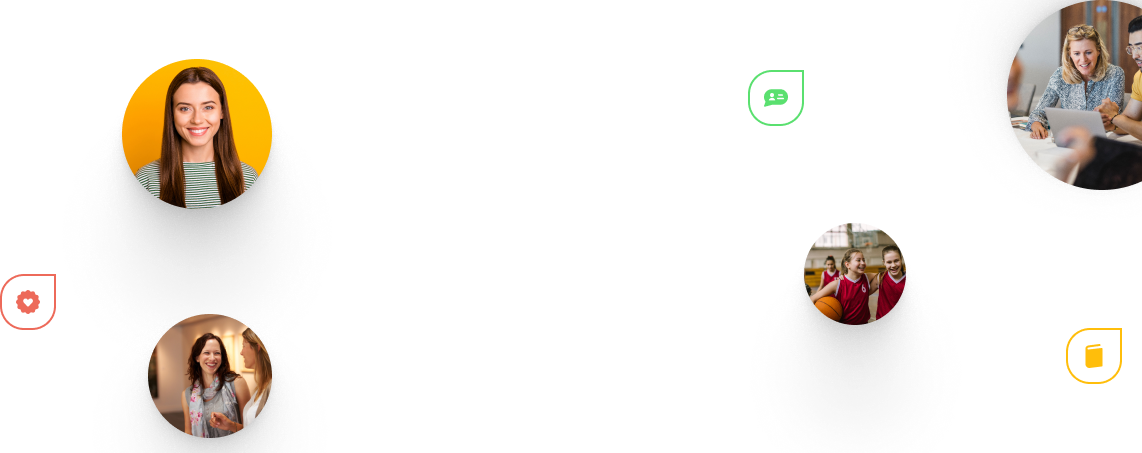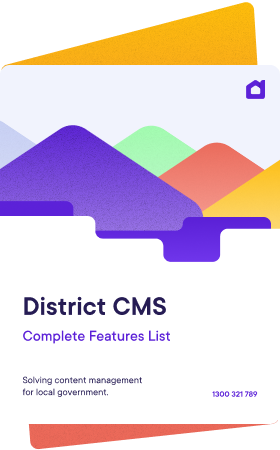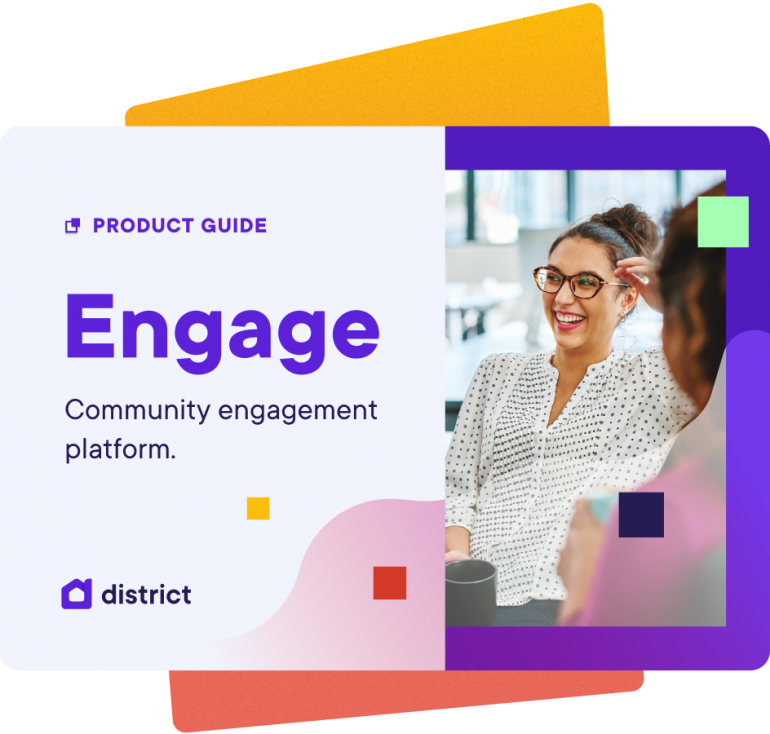Deliberative engagement creates space for community voices to be heard, respected, and integrated into decision-making processes.
Today, digital engagement platforms have transformed and streamlined deliberative engagement practices, making it easier than ever to manage stakeholders, committees and working groups. Offering confidentiality, security, and innovative engagement tools, a private consultation on a digital platform can enhance engagement, foster collaboration and encourage meaningful citizen participation.
In this article, we’ll explore how engagement managers can use a digital platform, such as District Engage, to enhance deliberative engagement practices in their organisation.
Understanding deliberative engagement
Unlike community engagement, which seeks feedback from a wide range of community perspectives, deliberative engagement is a closed consultation, between a select group of community representatives, who are tasked with evaluating the ideas, policies and proposals of the government and making recommendations based on their findings.
The deliberative process can take a number of forms, such as a citizens' assembly, citizen jury, or a community forum.
By creating space for diverse voices to be heard, respected, and integrated into the decision-making process, deliberative engagement aims to improve democratic processes, and instil a sense of trust and transparency in government.
Local government and deliberative engagement
With benefits to project planning, transparency and community outcomes, deliberative engagement is becoming increasingly popular across many jurisdictions. However, in Victoria, Australia, the government has taken it one step further: the Local Government Act (2020), has made deliberative engagement practices mandatory for local councils.
But deliberative engagement practices can be expensive. They require many participants, intense resources and costly administrative overheads. While outsourcing is available for well-resourced local councils, it’s not always an option for local governments with budgetary constraints.
This is where a digital engagement platform like District Engage can be useful.
By offering a simple, streamlined approach to complex stakeholder engagement, District Engage helps local governments fulfil their legislative requirements while laying the groundwork for innovative problem solving to benefit the whole community.
The benefits of a digital community engagement platform
A traditional approach to the deliberative process can be time-consuming and resource-intensive. But it can also fall short in terms of accessibility, inclusivity, and scalability. Physical constraints, scheduling conflicts, and limited reach can hinder meaningful participation, posing challenges for busy citizens and overstretched decision-makers alike.
A digital engagement platform, on the other hand, is designed to transcend geographical barriers and time constraints, amplify voices and streamline the engagement process.
At a glance:
- Inclusivity & Accessibility: Multiple participation channels—including online surveys, discussion forums, and interactive mapping tools—ensures every voice has the opportunity to be heard.
- Transparency: Real-time access to information and decision-making processes to foster an environment of accountability and transparency.
- Data-driven Insights: Leveraging data analytics and visualisation tools for immediate insights to inform policy decisions.
Digital tools for deliberative engagement
District Engage provides a suite of out-of-the-box tools to enhance collaboration and promote all forms of community engagement, from large-scale public consultation projects, through to private consultations for citizen assemblies and other forms of deliberative engagements practices.
Private and secure
For deliberative engagement, a private space where stakeholders can meet and hold discussions is essential. Offering a secure digital environment, District Engage is an ideal forum for managing negotiations in a committee, civic forum or citizen assembly.
Thanks to flexible and customisable settings, engagement managers can configure user accounts to be mandatory, anonymous, or optional, ensuring only authorised individuals have access to a private consultation. Multi-factor authentication adds a further layer of protection.
Powerful permissions
Thanks to our highly flexible permissions system, engagement managers control who can participate in a private consultation, and the level of their involvement. This enables strict confidentiality while facilitating deep collaboration between individuals, teams and groups.
Centralised project page
The project page is a centralised digital hub, and includes essential project information, supporting documents, maps and images, event calendar, contact information, participation tools, timelines, and more.
Participation tools
Engagement tools help to generate discussion, collaboration and communication, and offer reporting insights to help the group reach consensus. District Engage offers a suite of easy-to-use tools including:
- Surveys: simple or complex surveys with conditional logic
- Quick Polls: useful for gauging sentiment
- Idea boards: vote, comment and collaborate on user-generated ideas
- Discussions: topic-based threaded discussions
- Map feedback: gather spatial feedback
- Questions: ask questions to a panel of project experts
Events
To facilitate group activities, such as citizen juries, citizen assemblies and committee meetings, the Event tool is a vital activity hub, seamlessly managing invitations, RSVPS and notifications. Coupled with the ability to link to video conferencing tools (such as Zoom and Teams), and collaborative tools (such as Miro), the Event tool can help administrators facilitate workshops and deliberative sessions.
Timeline
To keep the engagement project on track, a timeline can outline past, present and future milestones. Each stage of the timeline can even function as a mini consultation: engagement managers can schedule events and include an RSVP button for meetings and working groups; provide up-to-date analysis of collected feedback; report on progress and seek more feedback on new proposals.
Notifications
The comprehensive notification system ensures that project followers are kept informed at every stage of the journey, with updates via platform notifications and email, plus an Updates tab on the main project page.
Reporting
For private consultations, analysing and measuring feedback data helps to gauge group sentiment, to inform collaboration and drive consensus. District Engage’s powerful reporting capability provides comprehensive project, tool and user reports that can be easily exported, analysed and shared via the project pages, or external communication channels.
New features
As a SaaS product, District Engage is always evolving, and looks to bring new tools to further enhance deliberative engagement processes. Upcoming features include:
- Participatory budgeting: enabling citizens assemblies to nominate priorities for council expenditure
- Deliberative polls/voting: enabling citizen assemblies to vote on a predefined range of options, such as urban amenities, or community events.
Best practices for running a closed consultation
District Engage's powerful tools can streamline and simplify any community engagement practice, from a community survey, to large public consultation, to a select group of citizens for a deliberative engagement, to stakeholder management. For closed consultations, there are a few ground rules to remember:
- Clear Communication: Effective communication is key to engaging citizens in deliberative processes. Clearly communicate the purpose, scope, and expectations of the engagement initiative, and provide accessible resources and support to facilitate meaningful participation.
- Facilitated Dialogue: Facilitate constructive dialogue by setting ground rules for respectful interaction, providing diverse perspectives, and fostering an inclusive atmosphere where all voices are heard and valued.
- Collaborative Decision-Making: Embrace a collaborative approach to decision-making by actively soliciting input from citizens, incorporating their feedback into policy discussions, and co-designing solutions that reflect community priorities and aspirations.
- Continuous Improvement Seek feedback from participants, evaluate the effectiveness of engagement initiatives, and iterate on the process to ensure continuous improvement and relevance to evolving community needs.
Digital community engagement platforms offer a transformative opportunity to enhance deliberative engagement, amplify citizen voices, and build stronger, more resilient communities.
By providing a private space, equipped with the tools and features to encourage innovative problem solving, we can harness the collective wisdom and creativity of our citizens to address complex challenges and chart a course toward a more just, equitable, and sustainable future.
If you want to find out more about how District Engage can facilitate deliberative engagement in your community, talk to our team about a free trial or schedule a demo today.



